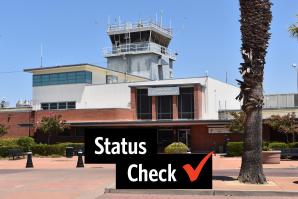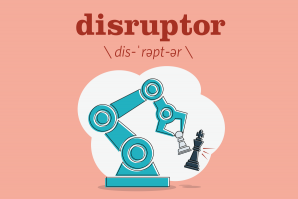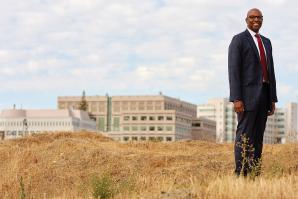Over the past three years, Louis Stewart has been the face of technological innovation efforts in Sacramento city government.
Since joining the city in May 2017 to serve as chief innovation officer, Stewart has been a conduit between technology firms, city leaders and other organizations, including the Sacramento Kings, for whom his younger brother Michael “Yogi” Stewart played in 1997-98 (Louis Stewart played basketball at Santa Clara University). Stewart has the enthusiasm of a startup entrepreneur, as he’s led initiatives such as the Sacramento Urban Technology Lab, which Comstock’s previously reported on (“The City is the Lab” in December 2019.)
But over the past several months, amid ongoing unrest following the killing of George Floyd by Minneapolis police officers, something hasn’t sat right for Stewart.
“I think there needs to be a way — and I said this in one of my blog posts — there needs to be a way that you take care of home first,” Stewart tells Comstock’s (Stewart is also a member of the Comstock’s Editorial Advisory Board). “Especially during these past few months of social unrest, there’s been a lot of extra weight, especially on the Black employees (of the city). We need to be given a little bit of grace and a little bit more support.”
For Stewart, taking care of home means departing city employment, effective Sept. 9, to take a senior position beginning the following Monday with Santa Clara-based computer hardware firm Nvidia Corporation.
“They pulled together a role that’s in need,” Stewart says. “Because they’re starting to look at how to diversify their developer pipeline, their developer ecosystem, all the programmers that do work on their existing platforms, but then also to have deep conversations about how to diversify the workforce within Nvidia and the pipeline into Nvidia.”
He says being able to “move to a corporation that is looking to help the Black and brown communities … it was super appealing.”
In Stewart’s time with the city, local leaders have spoken about the importance of using technology to bolster diversity and equity. Mayor Darrell Steinberg, who wasn’t available for comment for this story, told Comstock’s last year, “I will tell you what I’m focused on, more than anything around these issues, it is ensuring that as we develop these major innovation and technology projects, like Aggie Square, like the Mobility Center, that we are equally focused on their connection to our neighborhoods and to workforce development.”
Stewart wouldn’t directly comment on if he was dissatisfied with what the city is doing for Black or brown communities, saying, “I’ve written about my feelings over the past few months on my blog. I think I’ll just leave it there.”
In a June 2 post, Stewart wrote, “I don’t feel safe to speak my mind for fear of being fired.” He also noted that he hadn’t protested after Sacramento police fatally shot Stephon Clark in March 2018, though weeks later, in his “Taking Care of Home” post, Stewart added that he would support his fiancee, a white woman, as she protested.
“It’s time for folks to have a little bit of empathy for the Black people around them and the walk that we have to do as Black people in America,” Stewart says. “There’s been a lot over hundreds of years and history has had a horrendous effect on the Black community.”
Stewart, who previously spent seven years as deputy director of innovation and entrepreneurship for the California Governor’s Office of Business and Economic Development, is proud of what he has accomplished working for the city.
“The biggest thing that I brought to the role was starting from ‘yes’ and finding a way to work with innovators, work with policy, work with regulators to make Sacramento a beacon for innovation,” Stewart says. “I’m hoping that that spirit stays alive, and Sacramento continues to want to be at the center of innovation in California.”
The Office of Innovation & Economic Development, for which Stewart worked, “will continue to support our innovation and entrepreneurial community, providing leadership and organization for numerous efforts underway” and that the city would “be assessing next steps for the position,” said city spokesperson Jennifer Singer in an email.
For Stewart, there will be other priorities now, as he helps build a pipeline for Black and brown developers at Nvidia and continues to wish for something Black people might know all too well. “We want people to be aware and recognize that things have not been right for a long time,” Stewart says.
Editor’s note: This story has been updated to clarify the response from the City of Sacramento.
–
Stay up to date on business in the Capital Region: Subscribe to our newsletter today.
Recommended For You

Status Check: Sacramento County Airport System
Sacramento County Airport System uses $49.9 million in CARES Act funding to offset traffic decline from COVID-19
The pandemic has upended normal operations for the four airports, but stakeholders see reasons for optimism.

Buzzwords: Disruptor
A company, technology, good or service that is so innovative and widely adopted it disrupts an existing market
In ordinary English, “disruptor” might conjure up images of a kid acting out in class, or someone holding up traffic. Among the startup set, though, disruptor has become one of the highest compliments one can receive — or give to oneself.

The City Is the Lab
Urban Technology Lab is trying to put Sacramento on the innovation map
The Urban Technology Lab aimed to offer businesses and academic institutions a space to develop their ideas, products and services with the goal of making Sacramento more tech savvy. Is the program making good on that promise?
Part of this month’s Innovation issue

How Leaders Can Build True Inclusion
Adrienne S. Lawson, of UC Davis Health, talks about how leaders can promote workplace inclusion and justice
As the U.S. grapples with the COVID-19 pandemic, factors such as socioeconomic status, education, neighborhood and employment play a pivotal role in the fight against systemic racism and social injustice.



